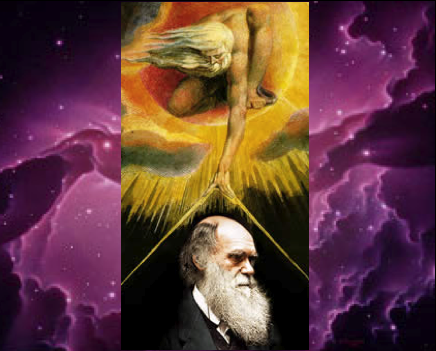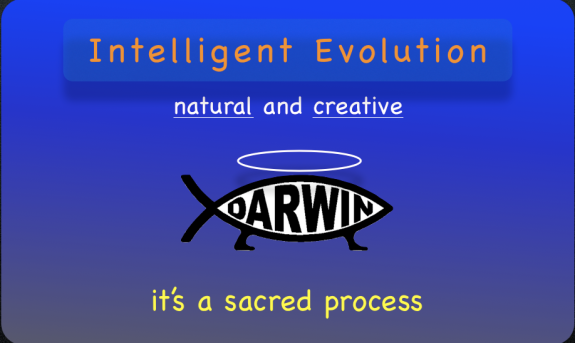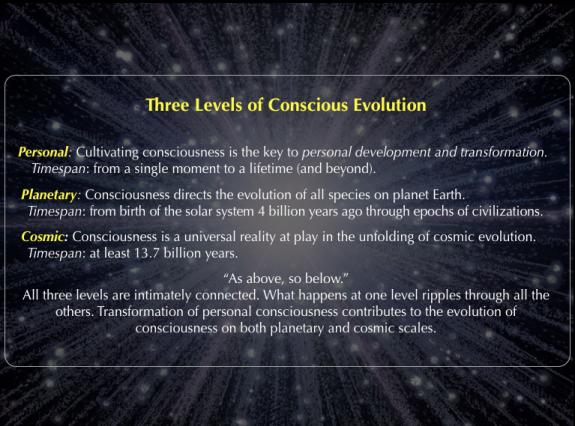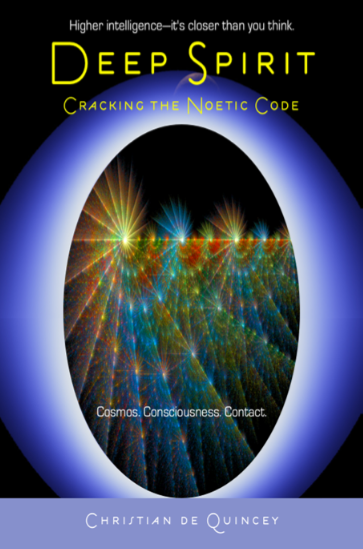
The Call of Consciousness
The human family is in the midst of the most significant transformation of consciousness since its emergence in Africa more than one hundred thousand years ago. Consciousness has been evolving for billions of years, from before the first cell to us.
We are becoming aware that through our own consciousness the universe can know itself. This awareness reveals incredible new potential for our individual and collective humanity.
With consciousness comes choice. And with expanding awareness, we can choose to more actively participate in the direction our evolution takes.
Simultaneously, we are the first species on Earth aware that we can destroy ourselves by our own actions (endangering and extinguishing countless other species along the way). This may be the greatest wake-up call to the evolution of consciousness since the origin of Homo sapiens sapiens.
We now realize we are affecting our own evolution by everything we do. This knowledge awakens in us the aspiration to become more conscious through receptive experiential practices—including meditation, reflection, prayer, and intuition—as well as through active expressions of conscious choice and creativity.
Doing so, we can accelerate our evolution in the direction of unity consciousness, and inspire us to deeply align our collective vision for a more compassionate and replenishing world.
(Adapted from “A Call to Consciousness.” For the full call to action, see below . . .)
‘A Call to Consciousness’ is a collective initiative from leading lights such as: Deepak Chopra, Marianne Williamson, Jean Houston, Barbara Marx-Hubbard, Greg Braden, Debbie Ford, Michael Beckwith, Lynne McTaggart, Joan Borysekno, and Bruce Lipton.
Respond to the Call: Find our more.
Add your name and your voice.

We Are Not Alone
Q: What drives collective evolution or evolution of consciousness and culture, and how do we consciously, creatively participate in it? Some of us believe that humans are the living face of evolution today—that we are, in fact, evolution becoming conscious of itself. Through us, evolution is coming to understand its own dynamics and is now poised to use them with intentionality, purpose, and intelligent design.
CdeQ: The phrase “intelligent design” is deliciously appropriate in this context. A deeper understanding of consciousness in evolution can help us in two ways:
First, by showing how consciousness shapes the development of societies and cultures. Second, and much more important, by accepting that consciousness is a decisive influence on the trajectory of species evolution itself.
In my work—especially in Radical Nature and my new book Deep Spirit—I make a strong case that consciousness has always been a factor directing the “adventure of matter” we call “evolution.” Human self-reflexive consciousness is, as you say, “evolution becoming conscious of itself.”
Since humans are natural products of evolution, then whatever attributes we have (including our self-reflexive consciousness) are automatically natural expressions of evolution, too. Yes we are a “living face” of evolution today—but we are not alone. We have very good reasons to believe that other species (such as cetaceans and some of the other great apes) also possess forms of self-reflexive consciousness.
The new-found human ability to tinker with genetics, of course, gives us a way to interfere with the process of natural selection that other species don’t possess. However, I think that conscious intention, much more than any DNA “fix,” is what, ultimately, will guide the future unfolding of evolution. In that case, the human capacity for genetic manipulation pales in comparison to the collective intention at work in all species—not just humans.
As always, I’m interested in shifting our attention (or expanding our attention) from a self-serving, self-absorbed focus on human consciousness or evolution. We share this ecosystem (and consciousness) with a host of other sentient beings, without whom we would not be who we are or be able to survive. The evolution of human culture/society will always take place within a larger context and network of other sentient beings who are also evolving.
Like most indigenous cultures do, we need to see our species as just one “nation” sharing this beautiful planet and awesome cosmos with a more-than-human world. The “intelligent design” at work in evolution is not something new that came on the scene with human consciousness. It has always been there—in all species, in all matter—as a natural ingredient of the sentient energy that pervades the cosmos, and underlies all of reality.
Creation is at work in evolution—the natural creative capacity that matter/energy itself possesses.
Creation is ongoing, not a one-time event. That’s why I speak of “intelligent evolution” as an alternative to the rather strange debate between proponents of “intelligent design” and neo-Darwinian evolution. Evolution, literally, is the “great story” that intelligent, sentient matter/energy is weaving for itself.
And I delight that you and I—and all our sentient colleagues—are part of this wondrous cosmic evolutionary tale.
Intelligent Evolution

What if both science and religion are wrong about evolution?
What if both are right?
We’ve all seen them: bumper stickers and decals of a fish with legs symbolizing Darwin’s theory of evolution. And then, from religious creationists, the “counter-decals” of a fish-with-a-cross swallowing “Darwin’s” amphibious fish. The battle of the decals is just one way the debate between creationists and evolutionists overflows onto our streets.
But there’s an alternative: a philosophy that shows why both religion and science have got it wrong—and right.
To move beyond the sectarian clashes and wars in these troubled times—between fundamentalists in both religion and science—we need a wiser, more coherent, account of who we are and how we came to be. We need a revised and renewed vision of creation and evolution. We need a deeper and broader understanding of both religion and science.
Both Wrong and Right
Religion is wrong to place the “Creator” beyond nature (as supernatural).*
Science is wrong to deny intelligence (consciousness or spirit) at work in evolution.
Religion is right to hold the view that there is creation and that creation possesses intelligence. And religion is right to deny that the birth and evolution of our world happened by chance.
Science is right to hold the view that evolution produces different species, including humans. And science is right to deny that some “supernatural” intelligent designer is responsible for the wondrous diversity and interconnectedness of living and non-living forms.
 Best of Both
Best of Both
In the new view, creation is not the result of some “supernatural Creator.” Nor is creation a one-time event. Instead, creation is continuous and natural. Evolution is not random and unfolding without the guidance of a deep intelligence. Nature itself is naturally intelligent and creative. That’s how evolution occurs.
Instead of a “higher” intelligence, let’s be open to a deeper intelligence. Instead of “dead” and “dumb” matter, let’s be open to sentient and intelligent matter.
Then we can have the best of both worlds—integrating the great insights of both religion and science. The “missing link” is consciousness. The ability to have experience, to feel, to be aware is a complete mystery to science. Evolution cannot explain it. Religions take it for granted that this ability is unique to humans (a special gift from the Creator). The fact of consciousness highlights the shortcomings of both science and religion, and it offers a way out of the seemingly endless debate between evolutionists and creationists.
New Worldview
We need a new worldview where religion recognizes that consciousness (intelligence or spirit) is not “supernatural,” but is part of the natural fabric of cosmos, Earth, and life, and where science recognizes that matter itself “tingles with the spark of spirit,” that evolution is guided from within.
This “new” philosophy or worldview is called “panpsychism” or “radical naturalism.” We could also call it “intelligent evolution.” (Actually, it’s a very ancient philosophy, shared by indigenous cultures throughout the world.)
If we shift to such a view, then we can begin to transcend the squabbles between those who believe in supernatural “intelligent design” and those who believe in random evolution.
The biggest challenge facing modern science is to explain the mystery of consciousness. A science based on the assumption of “dead” insentient matter exploding from a random Big Bang cannot account for mind. Yet consciousness is the one thing we can be absolutely certain exists.
The biggest challenge facing mainstream religion is to remain relevant in a world increasingly dominated by scientific knowledge.
The philosophy of intelligent evolution can help science and religion meet these challenges. In a nutshell, it takes us beyond the dogmas of both:
Beyond Religion: The world was not created by a supernatural transcendent God (in seven days or 13.7 billion years).
Beyond Science: The world did not come into being from a random Big Bang followed by billions of years of random chemical and biological evolution.
Instead, the most coherent story about how the world came to be (a world where both matter and mind are real) recognizes that
Spirit is not supernatural (above and beyond nature).
Evolution is not without purpose or intelligence.
The new philosophy offers a way to honor the deep insights of both religion and science.

Intelligent Design
Yes, there is an “intelligent designer” at work in evolution. But the intelligence (call it “God” or “Spirit”) is intrinsic to nature. Nature itself is intelligent (has sentience and consciousness, purpose and meaning) “all the way down” to single cells, molecules, atoms, and subatomic particles.
Evolution
In this new view of nature and evolution, matter itself is intelligent. Matter is “adventurous.” Evolution is the adventure of matter exploring its own creative potentials. As matter evolves, its native intelligence or consciousness evolves, too. So by the time human brains come on the scene, matter or nature has achieved the remarkable ability to be self-reflective—to know that it knows—and to ponder the eternal questions in religion, philosophy, and science: Where did we come from? Who are we? Where are we going? Why is there anything at all?
Intelligent Evolution: A Sacred Fish with Legs?
Instead of the amusing (and silly) bumper-stickers pitching Darwin against Jesus (evolution vs. religion), we can come up with a new set of symbols and sound-bytes:
Picture a decal that shows a fish with legs and a halo, indicating that evolution is a sacred process because spirit is active in the development of species. Evolution is natural and creative. We could say “Spirit Matters” or, just as meaningful, “Matter Spirits.”
* (“Religion,” here, refers to monotheistic doctrines. It does not include other teachings such as Buddhism or Taoism.)

Enter the World of Intelligent Evolution and the Great Adventure of Consciousness in Deep Spirit.


This is a really sweet page, Christian! Your approach and mine are most complementary.
Fabulous!!
Co-evolutionary love and blessings,
~ Michael
http://ThankGodforEvolution.com
http://EvolutionaryTimes.org
http://TheGreatStory.org
Well said!
cheers,
jim
Just passing by. Btw, you website has great content!
Just came by Lynne McTaggart’s website, which ultimately led me to yours. Very nice colors and design. I love learning about conscious evolution. Have you read Lynne’s book yet? The Intention Experiment, was got me started on my search for more about Intent, the power of thought, and conscious evolution.
Thanks again for adding to the wealth of knowledge!